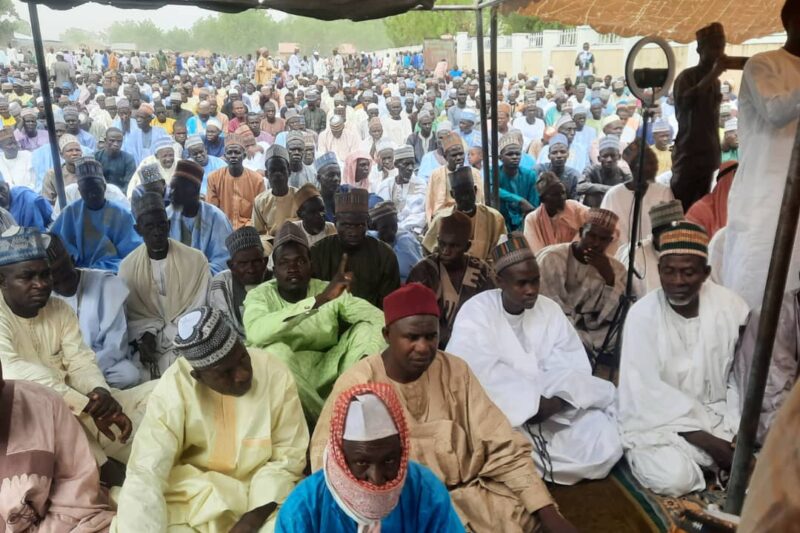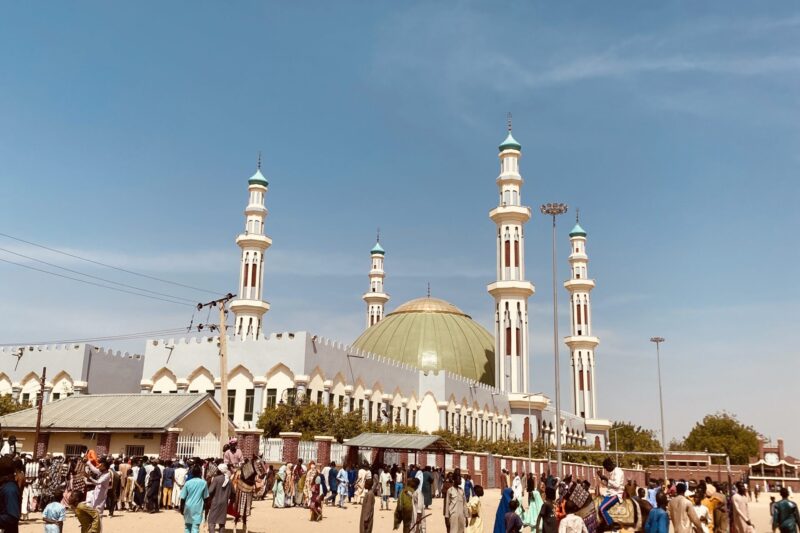“If the Jamā’at Ahl as-Sunnah lid-Da’way Wa’l-Jihād (JAS) catches a person trying to escape, they cut off his head and place it on his back – an terrifying example to stop other village residents from even thinking of trying to escape.”
So said Malam Massa, one of more than 370 men, women and children residents who have managed to escape from Dula Kafiye, a village between the Dikwa and Bama local government areas, which has been under the control of the JAS, more commonly known as Boko Haram, for three years.
The escapees told RNI reporter Abatcha Umar Tela that they were so relieved to have been able to escape from the clutches of the dreaded JAS.
Massa, a father of six from Dula Kafiya, said before the village was taken over, insurgents went there to look for spies who would provide intelligence information.
When they took over the village they started their reign of terror that has lasted for three years and continues.
“They killed my brother, leaving his six children orphans,” said Massa, who managed to escape a week ago and went to Dikwa.
He described being under the control of the JAS as a living hell that included torture and forced labour.
“I escaped quietly around 8 o’clock at night when the appointed guards were asleep. I had to run through the bush, getting torn by thorns and bruised from knocking into trees. The insurgents did not know I had escaped so no one ran after me. It took some hours but I eventually arrived at Dikwa.”
He said the insurgents treated the residents of the village very harshly. They hardly ever got nutritious food and they were brutalised daily. They were beaten and punished even when they had not done anything wrong. Some of the women were raped and some were forced to marry the insurgents. Some even had children with them.
If the insurgents caught anyone escaping, they would cut off his head and put it on his back. “That was an example for the rest of us of what would happen if we tried to escape. It was terrifying but it did not stop me from escaping at the first chance I got.”
Massa said he was very happy to be free again. He thanked God for protecting him during his escape.
He said the best thing was that he was able to reunite with two his six children in Dikwa.
Another escapee from Dula Kafiya village, Abubakar, said he and his family got the chance to escape a month ago.
“I arrived in Dikwa barefooted from Dula Kafiye at 10 o’clock with my mom, one wife and our son. We had a difficult life being held by the insurgents. They were cruel and hardly ever gave us food.”
He said the insurgents took most of the food the farmers produced.
“We were allowed to go to our farms only sometimes – usually when the insurgents wanted food – but then they insurgents would demand ‘tax’, taking most of the food we produced and leaving us hungry with nothing to sustain us.”
Abubakar said he was happy he had escaped.
“Now I have reunited with my father and friends. It is a great relief.”








